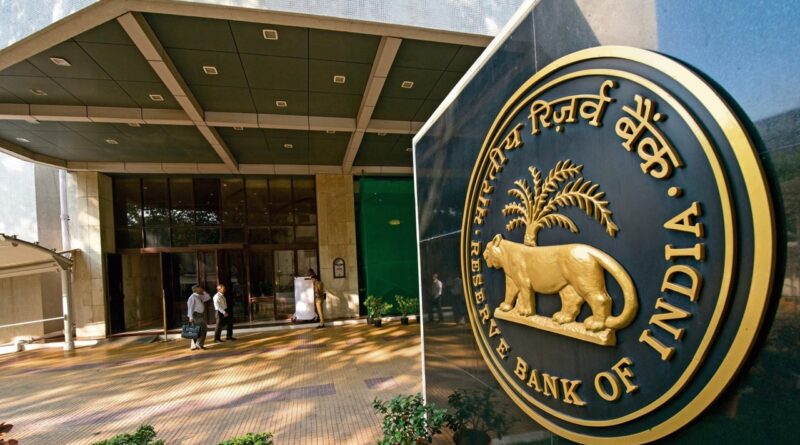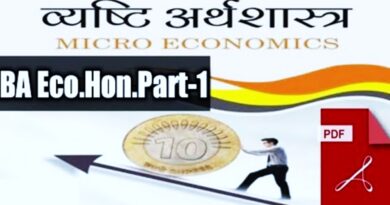9 Major Functions of a Central Bank
A central bank performs a number of important functions in every country. The major functions are as follows:
Contents
- 1 1. Bank of Issue
- 2 2. Banker, Fiscal Agent and Adviser to the Government
- 3 3. Banker to the Banks
- 4 4. Custodian of Nation’s Foreign Exchange Reserves
- 5 5. Lender of Last Resort
- 6 6. Clearing House for Transfer and Settlement of Mutual Claims of Commercial Banks
- 7 7. Controller of Credit
- 8 8. Promotional and Developmental Functions
- 9 9. Publication of Economic and Statistical Information
1. Bank of Issue
Central bank is the bank of issue. It enjoys the monopoly of note issue. In most of the countries the central bank is required to keep a certain amount of gold and foreign securities against the issue of notes.
Concentration of exclusive power of note issue with the central bank has a number of advantages:
• It brings uniformity in note issue as a result of which these notes are widely accepted as a medium of exchange.
• It imparts the notes a distinctive prestige as a result of which people develop faith in the currency.
• It enables the central bank to have an effective control on the bank money created by commercial banks.
• It enables the government to have supervision and control over the supply of money in the economy
2. Banker, Fiscal Agent and Adviser to the Government
Central banks in all countries act as banker, fiscal agent and adviser to the government. As the banker to the government, the central bank performs the same functions as are performed by commercial banks for their customers. The central bank receives the deposits of cash, cheques, drafts etc. from the government. It provides cash to the government for paying salaries and wages and other cash disbursements. It makes payments on behalf of the government. It gives short-period loans to the government. It buys and sells foreign currencies on behalf of the government.
As fiscal agent, it manages public debt. It issues new loans on behalf of the government, receives subscriptions to these loans, pays interest on them, and finally repays these loans. It also acts as the government’s agent in enforcing foreign exchange control.
The central bank acts as the financial adviser to the government. It advises the government on all financial and monetary matters and in the formulation of economic policies, such as those for the control of inflation or deflation, devaluation or revaluation of the currency, use of deficit financing, foreign trade policy, budgetary policy etc.
3. Banker to the Banks
Central bank has the same relationship with the commercial banks as the latter has with the general public. As the bankers’ bank, the central bank performs several functions. It acts as the custodian of cash reserves of commercial and other banks. Commercial banks are under statutory obligation to keep a part of their deposits as reserves with the central bank. The central bank provides credit, mainly short-term credit, to the commercial banks. It provides them guidance and direction and regulates their activities. Commercial banks are required to shape their policy in accordance with these directions and guidance of the central bank.
The centralization of cash reserves has many advantages, like:
• It is on the basis of these reserves that payment by one bank to another is done to facilitate the clearing of cheques.
• It is a source of great strength to the banking system of the country.
• Centralized cash reserve serves as the basis of a large and more elastic credit structure.
• The central bank can control the credit creation by the commercial banks by changing these cash reserves.
• Centralized cash reserve can be used effectively during the period of seasonal strains and in financial crisis or emergencies.
4. Custodian of Nation’s Foreign Exchange Reserves
As the custodian of foreign exchange reserves, the central bank performs several functions:
• All the foreign exchange transactions of a country are routed through the central bank. The central bank controls both the receipts and payments of foreign exchange.
• It tries to maintain stability of the exchange rate. For this purpose, it buys or sells foreign currencies in the market to minimize fluctuations in the foreign exchange rates.
• It enforces exchange control regulations prescribed by the government from time to time.
5. Lender of Last Resort
When commercial banks have exhausted their resources and are in need of funds they approach the central banks to tide over the financial crises. In its capacity as the lender of the last resort, the central bank provides, directly or indirectly, all reasonable financial assistance to commercial banks, discount houses, bill brokers and other financial institutions. The central bank assists such institutions in times of financial stresses through discounting of approved securities and collateral loans and advances.
6. Clearing House for Transfer and Settlement of Mutual Claims of Commercial Banks
Every day the customers of different banks issue cheques drawn on their banks. This creates the need of settling claims of the commercial banks on each other. Since the commercial banks keep their cash reserves with the central bank, it is easier and convenient to clear and settle claims on each other by making transfer entries in their accounts maintained with the central bank. For transfer and settlement of mutual claims of the banks, the central bank provides ‘clearing house’ facility in big cities and trade centres. It is a simple, convenient, time-saving and economical device for settling of commercial banks on each other.
7. Controller of Credit
The most important function of the central bank is to control credit creation by the commercial banks. Since ‘credit money’ or ‘bank money’ is the dominant form of money presently, it is essential that the supply of credit must be regulated so as to ensure the smooth functioning of the economy. For this purpose, the central bank adopts quantitative and qualitative methods of credit control. Quantitative methods aim at controlling the cost and availability of credit, while the qualitative methods influence the use and direction of credit.
8. Promotional and Developmental Functions
In a developing country, the central bank not only performs the so called traditional functions, but in addition it performs various promotional and developmental functions, among which the more important ones are:
• Central bank is entrusted with the responsibility of developing and promoting a strong banking system. For this purpose, it provides liberal and cheap rediscounting facilities to commercial banks and gives various types of concessions.
• It assists in the development of financial institutions like ‘developmental banks’ to provide investable funds for the development of agriculture, industry and other sectors of the economy. It helps in the development of money and capital market in the country. It also pursues appropriate monetary policy to promote economic development.
• Create awareness about financial products and services, good financial practices, going digital and consumer protection.
9. Publication of Economic and Statistical Information
The central bank collects periodical economic and statistical information relating to different aspects of the economy and publishes periodical reports. This provides valuable information regarding the functioning of the economy. This also enables the government to formulate appropriate economic policies to promote economic development.




